
For the trial, a biomarker will be utilized to aid in patient selection for the treatment.

For the trial, a biomarker will be utilized to aid in patient selection for the treatment.

The application is supported by data from the phase 3 AMPLITUDE trial.

Take a look through all the regulatory milestones in urology from the first half of the 2025.

Catch up on exclusive videos you may have missed from the first half of the year.

Here’s a look back at notable news between April and June 2025.

The da Vinci 5 platform is approved for use across urologic, gynecologic, and general laparoscopic procedures in adult and pediatric patients.

In this video, part 5 in a 5-part series, panelists examine the economic and logistical realities of bringing mitomycin for intravesical solution (Zusduri; formerly UGN-102) into private practice.

In this video, part 4 in a 5-part series, Nick Liu, MD, outlines key scenarios where surgical resection remains preferred for treating LG-IR-NMIBC.

In this video, part 3 in a 5-part series, panelists discuss the long-term clinical impact and health care system implications of mitomycin for intravesical solution (Zusduri; formerly UGN-102).

In this video, part 2 in a 5-part series, Nick Liu, MD, breaks down the formulation behind mitomycin for intravesical solution (Zusduri; formerly UGN-102).

In this video, part 1 in a 5-part series, panelists discuss how mitomycin for intravesical solution (formerly UGN-102, now marketed as Zusduri) fits into the evolving management landscape for recurrent bladder tumors.
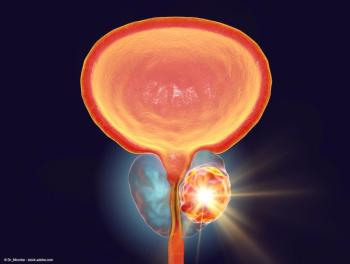
The study will utilize the companion lipid biomarker test, PCPro, to identify patients who may benefit from the addition of opaganib to darolutamide.

The trial is evaluating the efficacy of leflutrozole in improving testicular function and promoting spermatogenesis.

The combination demonstrated a 6-month radiographic progression-free survival of 66%.

A recap of the FDA submissions and regulatory decisions in urology from June 2025.

Pearlman and Parekattil dig deep into novel surgical and non-surgical approaches to chronic orchialgia and pelvic pain.

The TOBY test works by analyzing the molecular signatures of volatile organic compounds in urine.
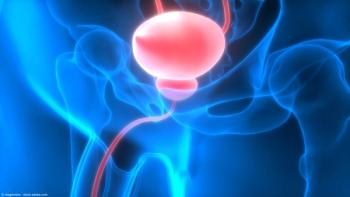
The primary end point for the trial is the complete response rate at 3 months.

A comprehensive guide to the key regulatory decisions and conferences slated for Q3 of 2025.

The study also found racial differences in the time to proceeding with surgical therapy.
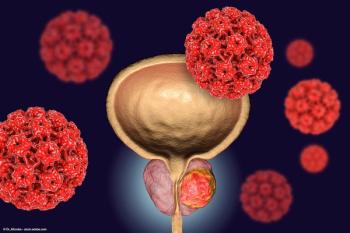
The unfortunate news of President Biden’s diagnosis has put a spotlight on prostate cancer, offering an opportunity to educate on the risks of the disease and the benefits of screening.

The test utilizes chromosomal instability signatures to predict resistance to taxane-based chemotherapy in metastatic prostate cancer.
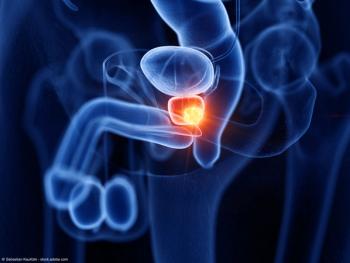
The results demonstrated a favorable ratio between radiation doses absorbed in the tumor vs the doses delivered to key healthy organs.

Oral sulopenem was approved by the FDA in October 2024 for the management of uUTIs.

Detalimogene is currently under evaluation in the pivotal phase 1/2 LEGEND trial.
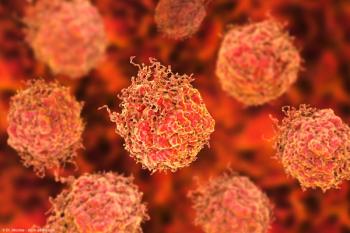
The approach was associated with a 30% decrease in PSMA uptake by the salivary glands without compromising the treatment’s efficacy.

"We have received numerous complaints about the PA and predetermination process. We all wish we could answer this differently and definitively," write Jonathan Rubenstein, MD, and Mark Painter.
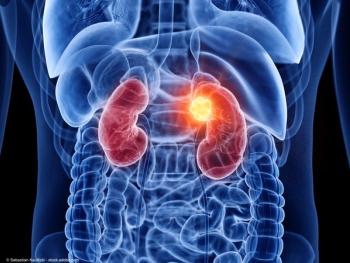
Arm D of the trial is assessing the performance of [68Ga]Ga-DPI-4452 in detecting ccRCC in patients with an indeterminate renal mass.

Howard B. Goldman, MD, FACS, discusses innovations such as tibial nerve stimulation devices, pudendal nerve targeting, and alternative stimulation frequencies.

The label expansion follows the FDA approval of an expanded label for 177Lu-PSMA-617 for use in patients with mCRPC after ARPI therapy and before chemotherapy.